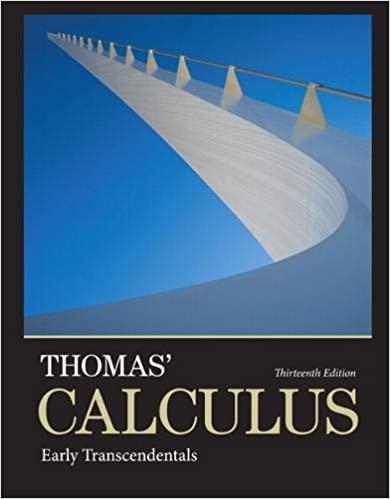That a sufficiently differentiable curve with zero torsion lies in a plane is a special case of
Question:
That a sufficiently differentiable curve with zero torsion lies in a plane is a special case of the fact that a particle whose velocity remains perpendicular to a fixed vector C moves in a plane perpendicular to C. This, in turn, can be viewed as the following result.
Suppose r(t) = ƒ(t)i + g(t)j + h(t)k is twice differentiable for all t in an interval [a, b], that r = 0 when t = a, and that v · k = 0 for all t in [a, b]. Show that h(t) = 0 for all t in [a, b].
Fantastic news! We've Found the answer you've been seeking!
Step by Step Answer:
Related Book For 

Thomas Calculus Early Transcendentals
ISBN: 9780321884077
13th Edition
Authors: Joel R Hass, Christopher E Heil, Maurice D Weir
Question Posted:





